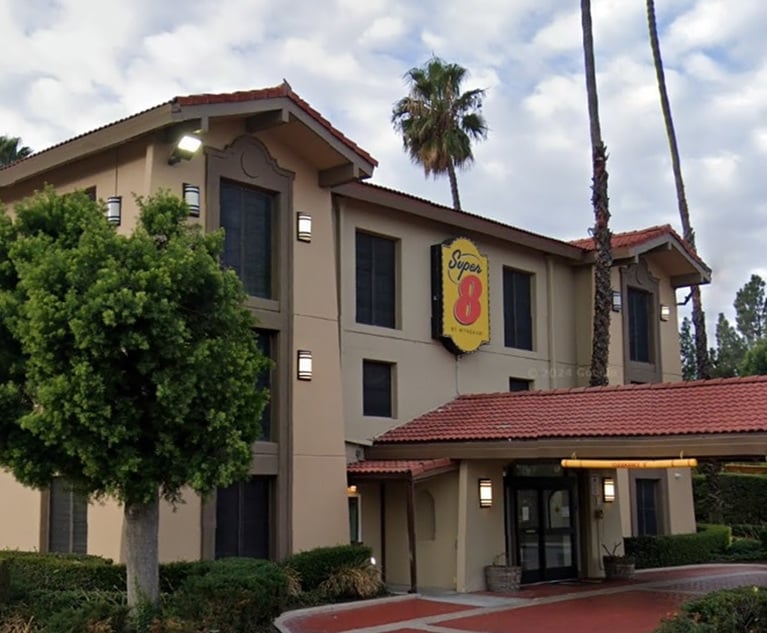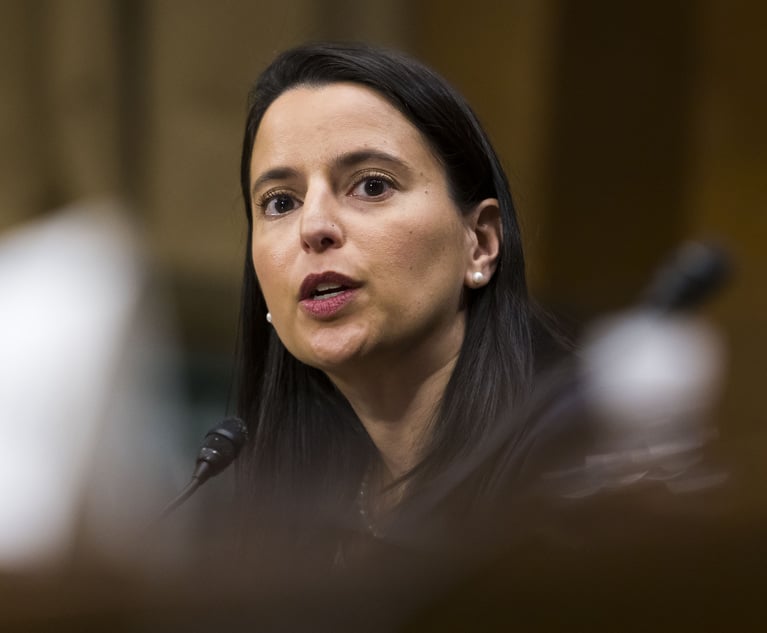Patenting the Internet of Things for Renewable Energy
The founders of MelRok have turned to Knobbe Martens to protect their plans for smoothing out the bumps in solar energy generation.
May 15, 2018 at 03:35 PM
4 minute read

Paul Donahue and Jeff Dankworth are trying to solve a problem few people knew we had: an over-abundance of renewable energy.
With so many rooftop solar panels and wind turbines adding extra power to California's energy grid, the state is generating so much electricity at unpredictable times that it has occasionally been forced to pay Arizona to take some off its hands. Otherwise, California would have risked damage to its grid.
“This overgeneration surprised everyone in California because it came so much earlier than everyone expected,” said Dankworth, who is general counsel to startup company MelRok. The boom shows no sign of slowing down, as the state just ordered every new home built after 2020 be solar-equipped.
MelRok chairman Donahue and Dankworth were ready. They've created an internet of things platform for measuring energy production and consumption in homes and businesses, enabling it to be distributed more efficiently. The company has adopted an aggressive intellectual property strategy, tapping Knobbe Martens partners Perry Oldham and Karen Lenker to construct its patent portfolio.
“We need a way to consolidate this information, organize it and make productive use of it,” Oldham said.
When over-generation occurred in the past, grid operators simply contacted major power plants and told them to ramp down production, said Donahue and Dankworth, who founded MelRok in 2011 with scientist Michael Kamel. But that model no longer works with 40,000 solar rooftops independently adding and subtracting power each day depending on the location of the sun, weather conditions and battery storage capacity.
“The question is, how do you orchestrate all that activity?” Donahue said. MelRok says it can monitor power generation and consumption in real time, and help homeowners, businesses and government entities determine when it's most efficient to charge electric vehicles, heat swimming pools, cool buildings or run desalination plants, for examples.
With funding from California Public Utilities Commission and San Diego Gas & Electric Co., the startup will begin installations in June at the San Diego Food Bank and various commercial locations in San Diego County.
“You need to have all these different devices configured with each other so they know when they should be firing up or firing down,” said Knobbe's Oldham.
Oldham and partner Lenker have worked with MelRok from the company's founding, helping obtain four patents with 12 more applications pending. The latest patent, “Systems and methods to manage and control renewable distributed energy resources,” was issued March 6.
Clearly demarcated IP is critical when negotiating partnerships with big companies, says Dankworth, a former attorney at Mitchell Silberberg & Knupp. “The very first thing” big companies say is “they want to own your IP,” he said. If it isn't clearly defined it will get absorbed by the larger company, he said. But if the boundaries are clear, they're more likely to say, “We'll just license what you have.”
The executives have relied on Oldham and Lenker to define their inventions in ways that can be useful and protectable, and to negotiate the claims with PTO examiners, all with an eye toward future enforcement if necessary.
The Knobbe lawyers have also advised on what not to patent. One example was MelRok's method for preventing hacking into energy systems. “Perry suggested we hold back on that as a trade secret, rather than publish it for everybody else to see,” Donahue said.
“Even if you're not pursuing patents,” Oldham said, ”you need to understand why you're not pursuing patents.”
Though the latest patent is focused on measuring and analyzing data, Oldham said he's confident it will pass Section 101 muster. Or at least as confident as any patent lawyer can be until more clarity comes from the courts or the PTO.
“101 is something you always have to be thinking about,” he said. “There are patents today that are being invalidated under 101 that no one would have questioned 10 or 15 years ago.”
Lenker said she enjoys working with the MelRok team, who bring the typical pride of ownership of startup inventors. “This is their baby,” she said, “and they're very excited and that enthusiasm is great to work with.”
➤➤ Want IP news that goes deeper? Geek out with Scott Graham's email briefing, Skilled in the Art. Sign up now.
This content has been archived. It is available through our partners, LexisNexis® and Bloomberg Law.
To view this content, please continue to their sites.
Not a Lexis Subscriber?
Subscribe Now
Not a Bloomberg Law Subscriber?
Subscribe Now
NOT FOR REPRINT
© 2025 ALM Global, LLC, All Rights Reserved. Request academic re-use from www.copyright.com. All other uses, submit a request to [email protected]. For more information visit Asset & Logo Licensing.
You Might Like
View All
Latham Adds Former Treasury Department Lawyer for Cross-Border Deal Guidance
2 minute read
Law Firms Expand Scope of Immigration Expertise Amid Blitz of Trump Orders
6 minute read
Trending Stories
- 1Latham's Lateral Hiring Picks Up Steam, With Firm Adding Simpson Practice Head, Private Equity GC
- 2Legal Restrictions Governing Artificial Intelligence in the Workplace
- 3Failure to Adequately Inform Patients
- 4'FTX' One Year Later: The Impact on Examiner Practice in Bankruptcy Courts
- 5Gen AI Legal Contract Startup Ivo Announces $16 Million Series A Funding Round
Who Got The Work
J. Brugh Lower of Gibbons has entered an appearance for industrial equipment supplier Devco Corporation in a pending trademark infringement lawsuit. The suit, accusing the defendant of selling knock-off Graco products, was filed Dec. 18 in New Jersey District Court by Rivkin Radler on behalf of Graco Inc. and Graco Minnesota. The case, assigned to U.S. District Judge Zahid N. Quraishi, is 3:24-cv-11294, Graco Inc. et al v. Devco Corporation.
Who Got The Work
Rebecca Maller-Stein and Kent A. Yalowitz of Arnold & Porter Kaye Scholer have entered their appearances for Hanaco Venture Capital and its executives, Lior Prosor and David Frankel, in a pending securities lawsuit. The action, filed on Dec. 24 in New York Southern District Court by Zell, Aron & Co. on behalf of Goldeneye Advisors, accuses the defendants of negligently and fraudulently managing the plaintiff's $1 million investment. The case, assigned to U.S. District Judge Vernon S. Broderick, is 1:24-cv-09918, Goldeneye Advisors, LLC v. Hanaco Venture Capital, Ltd. et al.
Who Got The Work
Attorneys from A&O Shearman has stepped in as defense counsel for Toronto-Dominion Bank and other defendants in a pending securities class action. The suit, filed Dec. 11 in New York Southern District Court by Bleichmar Fonti & Auld, accuses the defendants of concealing the bank's 'pervasive' deficiencies in regards to its compliance with the Bank Secrecy Act and the quality of its anti-money laundering controls. The case, assigned to U.S. District Judge Arun Subramanian, is 1:24-cv-09445, Gonzalez v. The Toronto-Dominion Bank et al.
Who Got The Work
Crown Castle International, a Pennsylvania company providing shared communications infrastructure, has turned to Luke D. Wolf of Gordon Rees Scully Mansukhani to fend off a pending breach-of-contract lawsuit. The court action, filed Nov. 25 in Michigan Eastern District Court by Hooper Hathaway PC on behalf of The Town Residences LLC, accuses Crown Castle of failing to transfer approximately $30,000 in utility payments from T-Mobile in breach of a roof-top lease and assignment agreement. The case, assigned to U.S. District Judge Susan K. Declercq, is 2:24-cv-13131, The Town Residences LLC v. T-Mobile US, Inc. et al.
Who Got The Work
Wilfred P. Coronato and Daniel M. Schwartz of McCarter & English have stepped in as defense counsel to Electrolux Home Products Inc. in a pending product liability lawsuit. The court action, filed Nov. 26 in New York Eastern District Court by Poulos Lopiccolo PC and Nagel Rice LLP on behalf of David Stern, alleges that the defendant's refrigerators’ drawers and shelving repeatedly break and fall apart within months after purchase. The case, assigned to U.S. District Judge Joan M. Azrack, is 2:24-cv-08204, Stern v. Electrolux Home Products, Inc.
Featured Firms
Law Offices of Gary Martin Hays & Associates, P.C.
(470) 294-1674
Law Offices of Mark E. Salomone
(857) 444-6468
Smith & Hassler
(713) 739-1250







